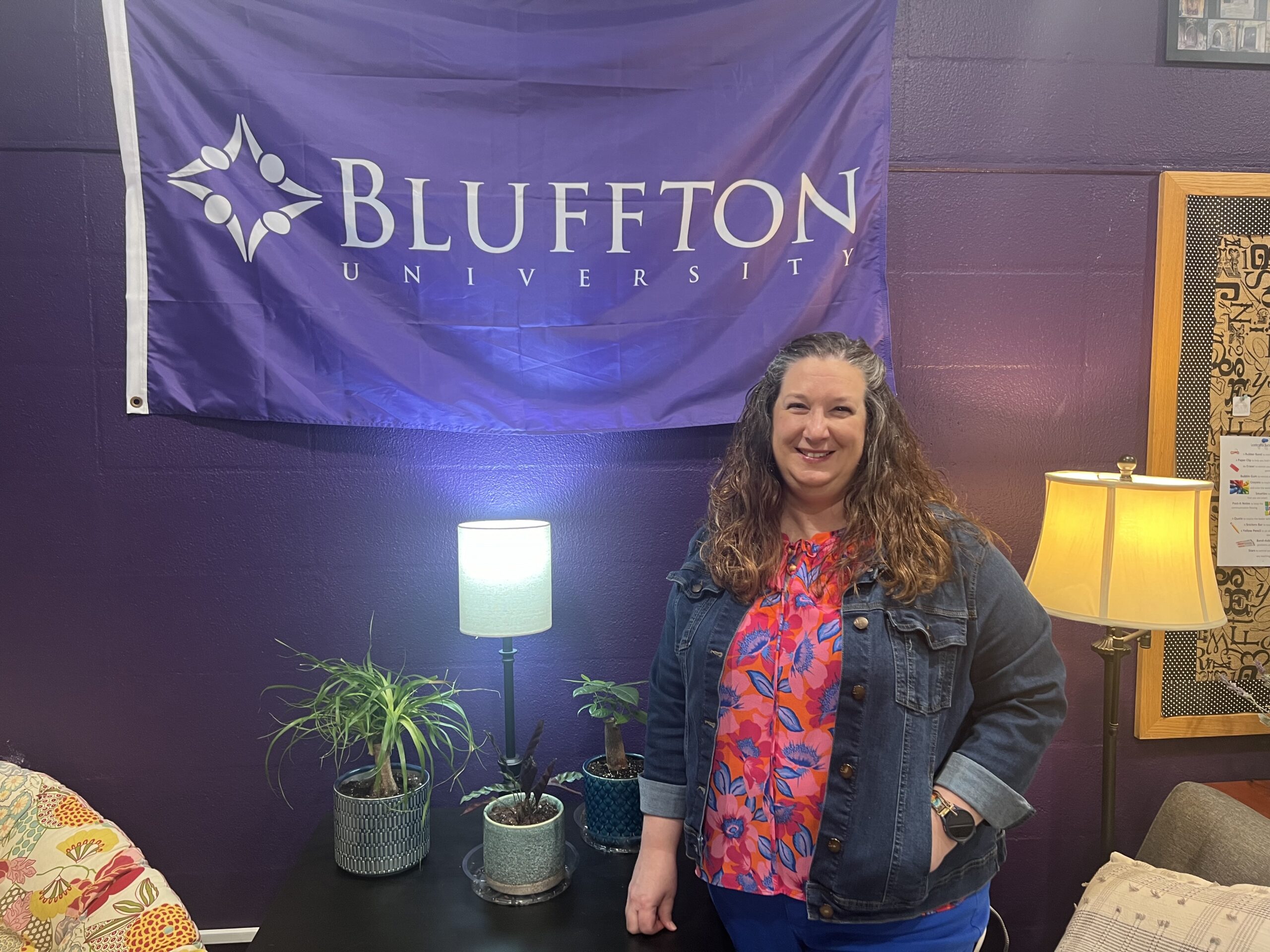After a year-long process, senior psychology major, Alana Holsapple, has submitted her honors project on differing attendance policies amongst classes.
Attendance policies for Bluffton University are primarily put in place by each professor. Some professors don’t make attendance part of

senior psychology major, Alana Holsapple. Photo captured by Payton Stephens.
students’ final grades, whereas others give out a certain amount of ‘freebie’ days for students to use if needed. In some cases, students may fail a class if they have unexcused absences once the free days have been used up. When a student has five different classes with five different professors, it can be difficult to keep track of which classes attendance policy is which.
Holsapple realized this and decided to investigate the university attendance policies further to see if professors and students were on the same page when it came to this topic. To begin the process, Holsapple created a proposal on her plans for this investigation for the Honors Committee to go over during her junior year; she then conducted the survey, collected and analyzed the results, and defended the results in front of the Honors Committee during her senior year.
The survey Holsapple created was formatted around the question of whether or not students and faculty’s perceptions of appropriate reasons for being absent are the same. In total, 153 students and 33 professors participated in the survey.

Deanna Barthlow-Potkanowicz, associate professor of psychology and Holsapple’s main advisor. Photo captured by Payton Stephens.
Deanna Barthlow-Potkanowicz, associate professor of psychology and Holsapple’s main advisor, was surprised by some of the survey results, and the range of differences between opinions from professors and from students. When asked if being tired was an appropriate reason to skip class, 40% of students and only 3% of professors said yes, and when asked if attendance should become part of The Honor Code, substantially more students said yes compared to professors.
“The one that really surprised me was 100% of the faculty said that it was okay to miss class if physically ill,” Barthlow-Potkanowicz said. “And only 61% of students thought it was okay. Which in a pre-COVID year we would see this a lot, students coming to class when they are noticeably sick.”
When Holsapple and Barthlow-Potkanowicz were analyzing the data, it became clear that more conversations need to be had between students and professors regarding attendance policies. Holsapple describes the data showing a gap as to what is excusable and what isn’t, saying the attendance specifics seem to be more assumed and not normally talked about.
With the differences in opinions between students and faculty, Holsapple is still aware that attendance does matter, no matter what the professors’ policies are. With graduation just around the corner, she knows having good attendance helps when looking for references.
“Even though some professors don’t take attendance, they still know,” Holsapple said. “And when you don’t show up to classes regularly and are expecting to go to grad school or get a job, guess who is supposed to write those references. Those professors whose classes you skipped all the time.”
At the beginning of April, Holsapple was able to defend her project in front of committee members. She will be presenting her project once again at the academic awards forum on Tuesday, March 27.






